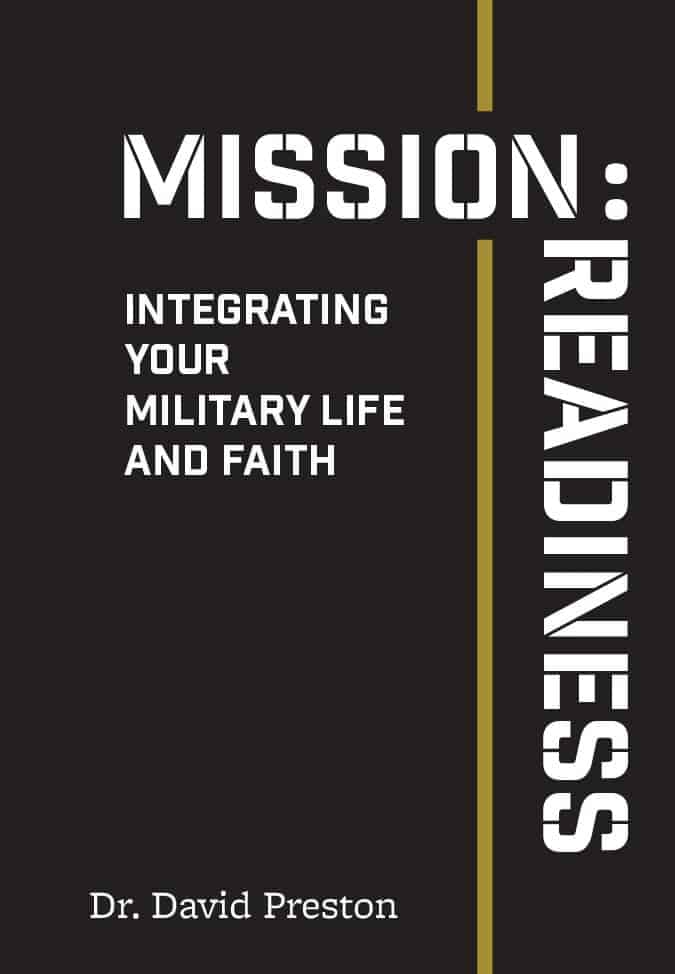For the Love of a Disciple

While it seems clear that the church in Thessalonica is healthy and growing, there seems to be evidence that some in the church had sought to undermine Paul’s authority by casting doubt about the sincerity of his love and commitment to the church he founded.
This portion of Scripture presents Paul’s defense of the sincerity of his love, and at the same time provides one of the best outlines found in scripture of the heart, motivation and activities involved in discipleship.
A Willingness to Sacrifice
You know, brothers, that our visit to you was not a failure. We had previously suffered and been insulted in Philippi, as you know, but with the help of our God we dared to tell you his gospel in spite of strong opposition. For the appeal we make does not spring from error or impure motives, nor are we trying to trick you. (1 Thess. 2:1-3)
Paul begins by telling the Thessalonians that his initial visit to Thessalonica was no accident. Apparently, one of the rumors circulating was that Paul had never really intended to visit the city.
Paul’s first defense of his commitment to them is to remind them of the sacrifice and risk he endured in telling them the gospel. As one traces the story in Acts 16, probably no more than a week prior to his visit, Paul had been severely beaten in Phillipi. He was probably still physically recovering when he arrived. Still aching from a severe beating for his faith, Paul risks his life or the possibility of another beating in order to proclaim the gospel in Thessalonica.
Paul’s reasoning here seems to be “Would I have done this by accident, and would I have risked so much, if I really didn’t love you?” Personal sacrifice, then, is a hallmark of sincerity and is implicit in discipleship. While Christ’s sacrifice for our sin is all that is required for eternal life, it often requires sacrifice to bring the gospel message to others and ground them in the foundational truths of the faith.
As the chapter progresses, we can begin to better construct what some of these allegations were against Paul. Apparently he was being accused of being nothing more than a religious charlatan who had won over the hearts of the Thessalonians in an attempt to financially profit from them.
The first century was obviously much more religious then the 21st century is, in that most people believed in some type of god or gods. As a result, religious charlatans were not uncommon: pseudo-wisemen and sages would often come into town espousing some new philosophy or teaching.
Many of them were looking for followers off of whom they would live – greed was a primary motivation. With this background, the accusations or rumors about Paul’s motivations don’t seem to be quite so outrageous, but it was important for Paul to clarify nonetheless.
A Willingness to Tell the Truth
You know we never used flattery, nor did we put on a mask to cover up greed – God is our witness. We were not looking for praise from men, not from you or anyone else. (1 Thess. 2:4-6)
Paul asks the Christians to remember how he had never used flattery, but rather told people the truth, even if it was hard to hear. Paul’s point is that you can know someone really loves you if they are willing to tell you hard things: telling you truth for your good rather than flattery, which is selfishly motivated.
The second lesson we learn here about discipleship, is that it requires courage to speak truth into the life of a younger or less mature Christian. Everyone has “blind spots,” areas of sin, or under-development in character. One of the roles of a discipler is to lovingly make someone aware of these areas. It requires courage because often such truth is met with resistance or even retaliation.
It is important that it be couched with encouragement as well as obvious love and concern. The discipler must see that God has entrusted this believer to their care and given them the responsibility to be honest about needed areas of growth in maturity and holiness. As Paul mentions in this passage, perhaps the greatest barrier is our own desire to be liked. Paul says that a discipler must be more concerned with pleasing God than men.
Nurturing and Vulnerability
...but we were gentle among you, like a mother caring for her little children. We loved you so much that we were delighted to share with you not only the gospel of God but our lives as well, because you had become so dear to us. (1 Thess 2:7-8)
Here, Paul makes two more points to back up his claim that he loves them sincerely. He brings to their remembrance how he nurtured them and sacrificially cared for them like a mother cares for her children. The metaphor of a mother brings to mind the picture of nurturing, which is accomplished in discipleship though grounding a Christian in the basic teachings of the Faith.
Discipleship must have a teaching component where a Christian is fed the essential teachings of what Christ has accomplished for them, and how they are to grow in their relationship with Him. Cru offers a basic follow-up curriculum for this very purpose. This curriculum is not comprehensive but is a great place to start with material that has already been prepared.
Next, Paul says that he was “delighted to share not only the gospel of God but our lives as well.” He is underscoring the sincerity of his love by reminding them of how he opened up his own life to them, and was vulnerable as he lived among them. Vulnerability is a hallmark of sincerity – giving others an invitation to enter your life, even as you have entered their lives.
One of the best ways to invite others to open up their spiritual lives with you, so that you may help them grow, is for you to open up your life, both struggles and victories, with them. In many, ways using your own life as a model you can show a young Christian what it looks like to walk with Christ. The more honest and transparent you are, the more helpful the model will be for others to follow.
Therefore, it’s important to share with a young Christian what God is currently teaching you, what you are learning in the Scriptures, and how you are dealing with your own temptations, trials, and faith challenges.
Everything Motivated By Love
Surely you remember, brothers, our toil and hardship; we worked night and day in order not to be a burden to anyone while we preached the gospel of God to you. You are witnesses, and so is God, of how holy, righteous and blameless we were among you who believed. For you know that we dealt with each of you as a father deals with his own children, encouraging, comforting and urging you to live lives worthy of God, who calls you into his kingdom and glory. (1 Thess. 2:9-12)
In this section, Paul adds three more closing points to his argument. First, he tells them that he worked to support himself, choosing not to take money or handouts from them. In short, he reminds them that his relationship with them never had a component of personal gain. Everything he did for their growth was motivated by his love for them.
Next, he calls to mind the manner of life he lived among them. He lived a “holy, righteous, and blameless” life before them so there would not be room for anyone to doubt his integrity. Clearly we can learn from the failures and short-comings of others, yet the most powerful model for change is always a positive one.
Discipleship, in a good way, raises the importance of keeping our own lives free from sin. It also provides motivation to model bold faith in evangelism and ministry to be a positive example for younger Christians. Last, it prods us to be growing in our own relationship with Christ, to provide spiritual food and insight that we can then share with others.
Adults are often prompted, by having their own children, to pursue greater maturity and character. The same dynamic is at work in becoming a discipler to younger Christians.
Finally, he builds on the mothering metaphor by adding that he also acted as a loving spiritual father toward them, urging and encouraging them to live holy lives. The picture painted by “urging, encouraging, and comforting” is that of a coach: someone who seeks to push and motivate another to greater levels of competence.
The motivational tools applied by a coach are urging and encouraging to strive for excellence, and comforting when the path is difficult or discouraging. It is instructive in a discipleship relationship to see oneself as a coach, who gives great thought and effort to help another excel in their walk with Christ.
Becoming a good coach takes time and practice; learning to discern when someone needs to be urged and challenged, and when they simply need to be comforted. Good disciplers, like good coaches, learn to discern when each is appropriate.
Getting Started
One of the great barriers to forming discipleship relationships is not knowing how to begin one. It’s seems rather awkward to think of approaching a young Christian and asking, “Can I disciple you?”
Often the best place to begin is by simply initiating a meeting. Ask the individual if they would like to get together some time for lunch. During that first meeting ask questions about their walk with Christ and show your interest in them, perhaps asking how you might pray for them.
Be vulnerable and share what is going on in your Christian life. Before the first meeting ends, simply suggest that maybe it would be good to get together weekly “to catch-up, eat, and perhaps take a look at a passage of Scripture.”
When you get together the second time bring one of the Cru follow-up studies. Spend some time just talking and at some point bring out the follow-up study suggesting, “I wasn’t sure where we might begin but I grabbed one of these studies thinking it might be a good place to start.” Then take some time and go through it.
Like a first date you can not eliminate all awkwardness. This is one of the ways that you are sacrificing to help another Christian grow, like Paul who “dared” to share with the Thessalonians. That awkwardness of the first meeting is what keeps millions of young Christians from ever being discipled.
The uneasiness fades after the first meetings and what ensues is a powerful relationship that can be a catalyst to both of your spiritual lives. This can only happen however, if you are willing to take those first steps to initiate.
Rick James has been on staff with Cru for over 25 years and serves as the publisher of CruPress.















